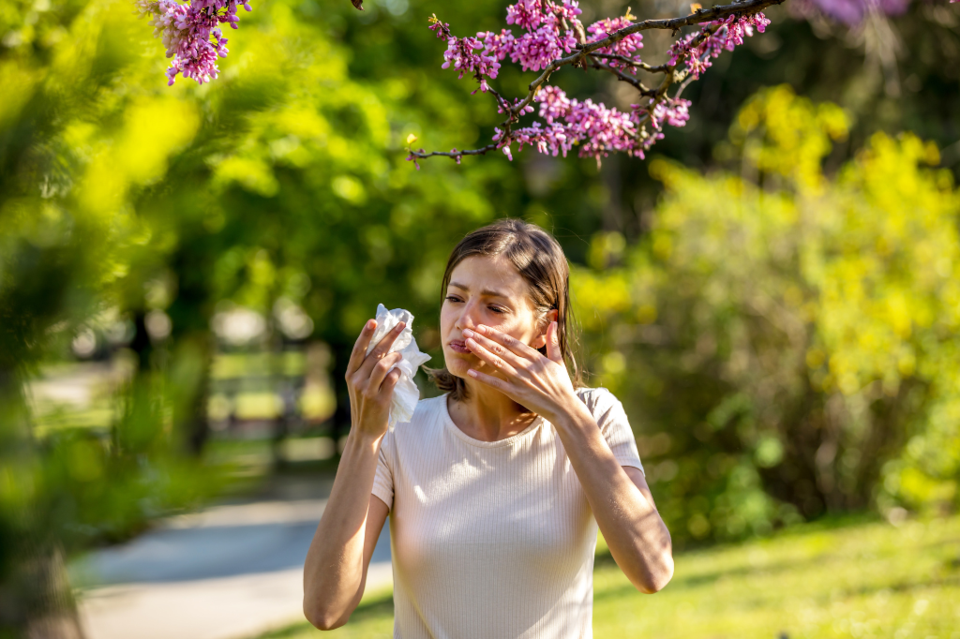Many of us dread the uncomfortable itching and sneezing of seasonal allergies.
For millions of Canadians, allergy season is in full swing. This means those who suffer from allergic rhinitis, commonly known as hay fever, are feeling the effects. The sun is shining, the birds are singing, the flowers are blooming, and… your allergies are out of control!
While there’s nothing you can do to control the pollen outside, we have some tips to help you manage your allergies this season.
Follow the forecast
Your weather forecast will likely include reports on how much pollen is circulating in your area, like the familiar updates on humidity and air quality. Since hay fever is an allergy to pollens from plants, staying up to date on this information can help you avoid exposure to your allergen and reactions to it. Consider staying inside on days when the pollen count is high, or conditions are particularly dry or windy.
Block it out
As nice as the fresh air might feel – allowing you to crack open your windows – it can also bring lots of pollen into your home. The same goes for your vehicle when you’re on the road. Also, turn on the air-recirculating setting on your ventilation system to avoid bringing pollen-saturated air inside.
Get covered
When you do need to go outside on bad pollen days, it might help to wear a hat and sunglasses. They can act as a barrier to keep pollen from blowing into your face and triggering allergy symptoms like watery eyes or a scratchy throat. They can also help prevent pollen from settling in your hair and getting onto your pillow and then face while you sleep.
Clean up
You should regularly wash your bedsheets, but did you know this can also help with allergies? Dust mites, flakes of dead skin, pet hair and pollen that hitched a ride on your hair or skin can accumulate on your pillows and sheets and repeatedly trigger your allergy symptoms. It’s not a bad idea to change into fresh clothes after you arrive home from outdoor activities either.

Take action
If you’re suffering from seasonal allergies like hay fever, or you’re not sure that’s what it is, you can get some advice from your pharmacist. Pharmacists in Ontario, are licensed to diagnose and treat 19 minor issues and illnesses, including allergic rhinitis and the uncomfortable watery, itchy eyes, nose, and throat that often come along with it.
You can find out more information at rexall.ca/prescribing.





